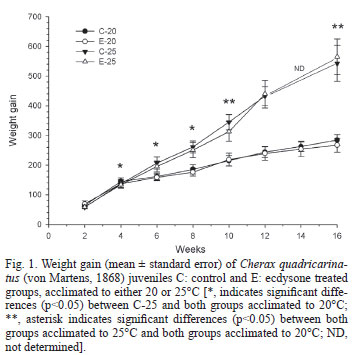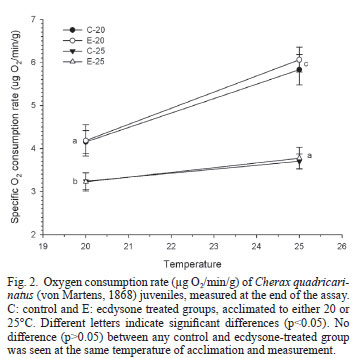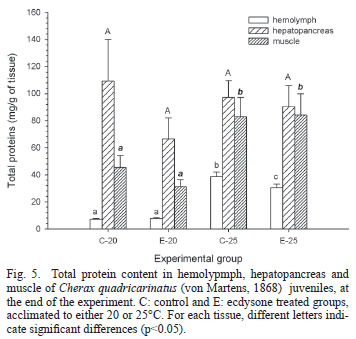Growth, metabolic rate, and energy reserves of Cherax quadricarinatus (von Martens, 1868) juveniles were evaluated in crayfish acclimated for 16 weeks to either 25ºC (temperature near optimum) or 20ºC (marginal for the species). Additionally, the modulating effect of ecdsyone on acclimation was studied. After 12 weeks of exposure, weight gain of both experimental groups acclimated to 25ºC (control: C25, and ecdysone treated: E25) was significantly higher than that of those groups acclimated to 20ºC (C20 and E20). A total compensation in metabolic rate was seen after acclimation from 25ºC to 20ºC; for both the control group and the group treated with ecdysone. A Q10value significantly higher was only observed in the group acclimated to 20ºC and treated with ecdysone. A reduction of glycogen reserves in both hepatopancreas and muscle, as well as a lower protein content in muscle, was seen in both groups acclimated to 20ºC. Correspondingly, glycemia was always higher in these groups. Increased lipid levels were seen in the hepatopancreas of animals acclimated to 20ºC, while a higher lipid level was also observed in muscle at 20ºC, but only in ecdysone-treated crayfish.
Energy reserves; growth; metabolic rate; Q10







